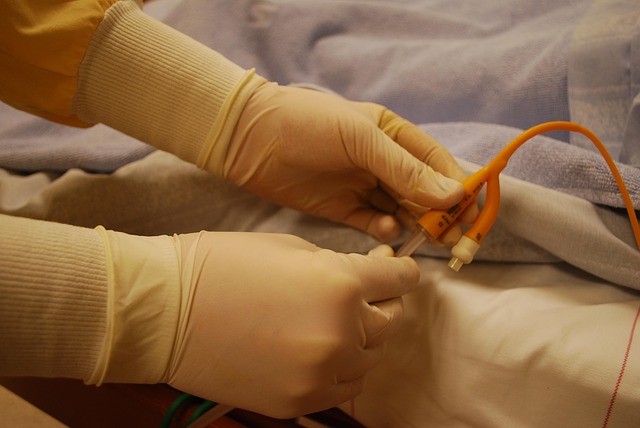Navigating Neuropathy Clinical Trials: A Comprehensive Guide
Neuropathy clinical trials help researchers develop new treatments for conditions like diabetic peripheral neuropathy (DPN) and may give eligible participants access to experimental therapies and study-related care while contributing to medical research.

What Are Clinical Trials for Neuropathy Management?
Clinical trials for neuropathy management are carefully designed research studies that test new treatments, medications, or therapeutic approaches for various forms of nerve damage. These studies follow strict protocols to evaluate the safety and effectiveness of potential treatments before they become widely available to patients.
Researchers conduct these trials in phases, starting with small groups to assess safety and gradually expanding to larger populations to determine effectiveness. Common types of neuropathy studied include diabetic peripheral neuropathy, chemotherapy-induced peripheral neuropathy, and idiopathic neuropathy. Participants may receive experimental medications, medical devices, or innovative therapies not yet available through standard care.
How Can You Participate in Neuropathy Clinical Studies?
To participate in neuropathy clinical studies, you must meet specific eligibility criteria that vary by study. These typically include having a confirmed neuropathy diagnosis, being within certain age ranges, and meeting particular health requirements. Some studies focus on specific types of neuropathy or severity levels.
The process begins with screening visits where research teams assess your medical history, current symptoms, and overall health status. If you qualify, you’ll receive detailed information about the study’s purpose, procedures, potential risks, and benefits. You’ll have time to ask questions and discuss participation with your healthcare provider before making a decision.
What Privacy and Safety Measures Protect Clinical Trial Participants?
Privacy and safety in clinical trials are paramount concerns governed by strict regulations and oversight. In the UK, the Medicines and Healthcare products Regulatory Agency (MHRA) and Research Ethics Committees ensure all trials meet rigorous safety standards before approval.
Your personal information remains confidential throughout the study, with data protected under the General Data Protection Regulation (GDPR). Study teams use identification numbers rather than names in research records, and access to your information is limited to authorised personnel. Safety monitoring committees regularly review trial data to identify any concerning patterns or side effects, and studies can be modified or stopped if safety issues arise.
How Do You Find Clinical Trials in Your Area?
Finding clinical trials in your area requires exploring multiple resources and databases. The UK Clinical Trials Gateway provides a comprehensive searchable database of trials conducted across the country. The National Institute for Health and Care Research (NIHR) Clinical Research Network also maintains listings of available studies.
Major medical centres and universities often conduct neuropathy research, so contacting neurology departments or pain management clinics can provide local opportunities. Your GP or specialist may be aware of relevant studies and can provide referrals. Additionally, patient advocacy organisations for neuropathy often maintain information about ongoing research opportunities.
What Makes UK Neuropathy Research Unique?
The UK has established itself as a leader in neuropathy research through its National Health Service infrastructure and academic partnerships. The country’s centralised healthcare system enables researchers to access larger patient populations and conduct long-term follow-up studies more effectively than in many other countries.
British researchers have made significant contributions to understanding diabetic neuropathy, with studies conducted through institutions like Imperial College London and the University of Manchester leading to breakthrough treatments. The UK’s strong regulatory framework ensures high-quality research while its diverse population provides valuable insights into how neuropathy affects different ethnic groups and demographics.
Understanding Research Costs and Support Available
| Support Type | Provider | Coverage Details |
|---|---|---|
| NHS Research Support | National Health Service | Travel reimbursement, study-related medical care |
| NIHR Patient Support | National Institute for Health Research | Reasonable travel costs, accommodation when needed |
| University Studies | Academic Medical Centres | Parking, refreshments, study procedures at no cost |
| Private Research | Pharmaceutical Companies | All study-related expenses, compensation for time |
Participants in neuropathy clinical trials typically receive comprehensive support without financial burden. The NHS covers all study-related medical procedures, tests, and treatments. Most studies provide reimbursement for travel expenses, parking fees, and may offer modest compensation for time and inconvenience.
Private pharmaceutical companies conducting trials often provide more substantial support, including accommodation for overnight stays when required. However, compensation varies significantly between studies, and participants should never feel financially pressured to join research.
Prices, rates, or cost estimates mentioned in this article are based on the latest available information but may change over time. Independent research is advised before making financial decisions.
Making an Informed Decision About Trial Participation
Deciding whether to participate in a neuropathy clinical trial requires careful consideration of potential benefits and risks. While trials offer access to innovative treatments and close medical monitoring, they also involve uncertainties about treatment effectiveness and possible side effects.
Consider your current treatment options, quality of life, and personal circumstances when evaluating trial participation. Discuss the opportunity thoroughly with your healthcare team, family members, and the research staff. Remember that participation is voluntary, and you can withdraw from a study at any time without affecting your regular medical care.
Clinical trials represent hope for better neuropathy treatments while advancing medical knowledge for future patients. By understanding the process, safety measures, and available support, you can make an informed decision about whether participating in neuropathy research aligns with your healthcare goals and personal values.
This article is for informational purposes only and should not be considered medical advice. Please consult a qualified healthcare professional for personalized guidance and treatment.




